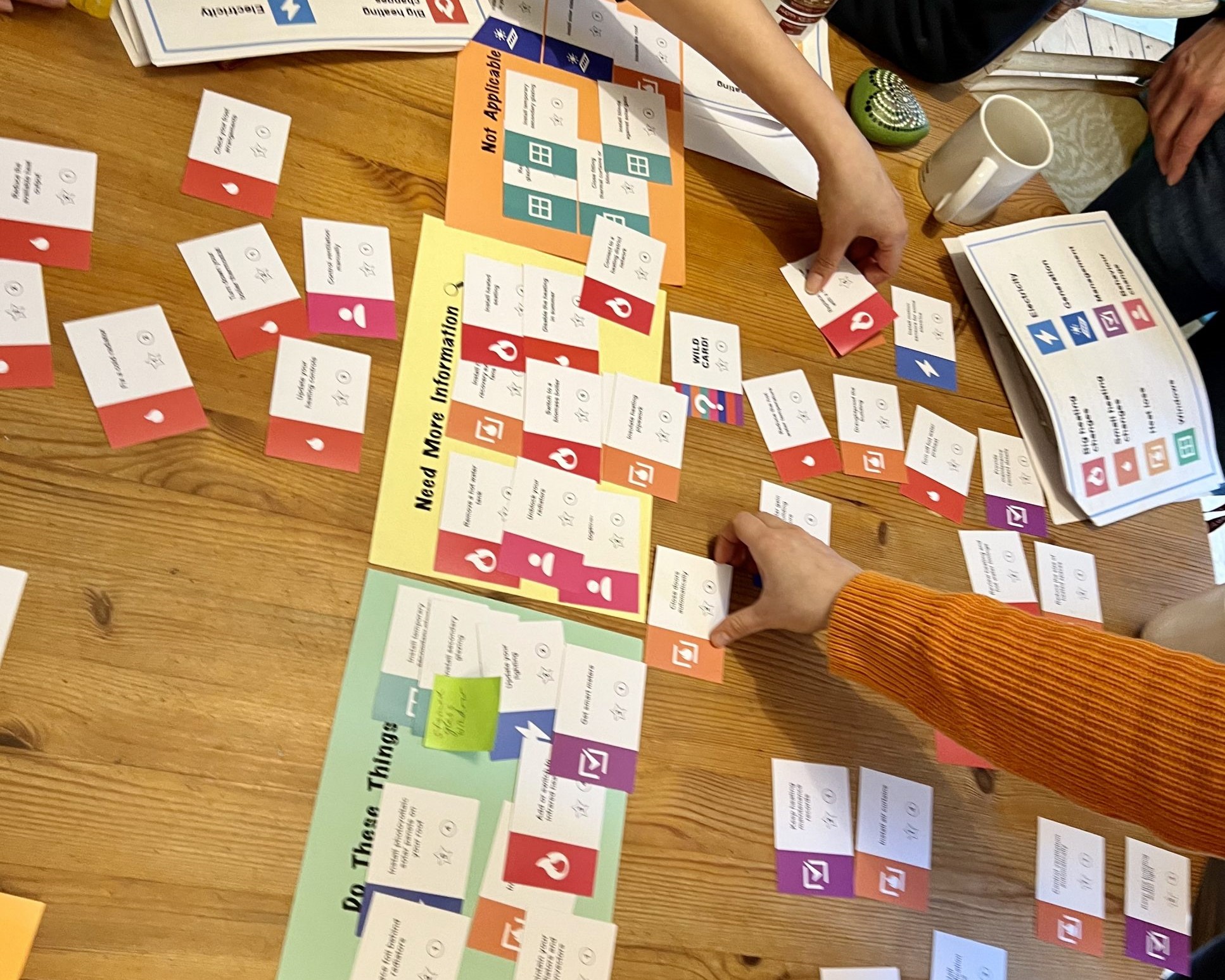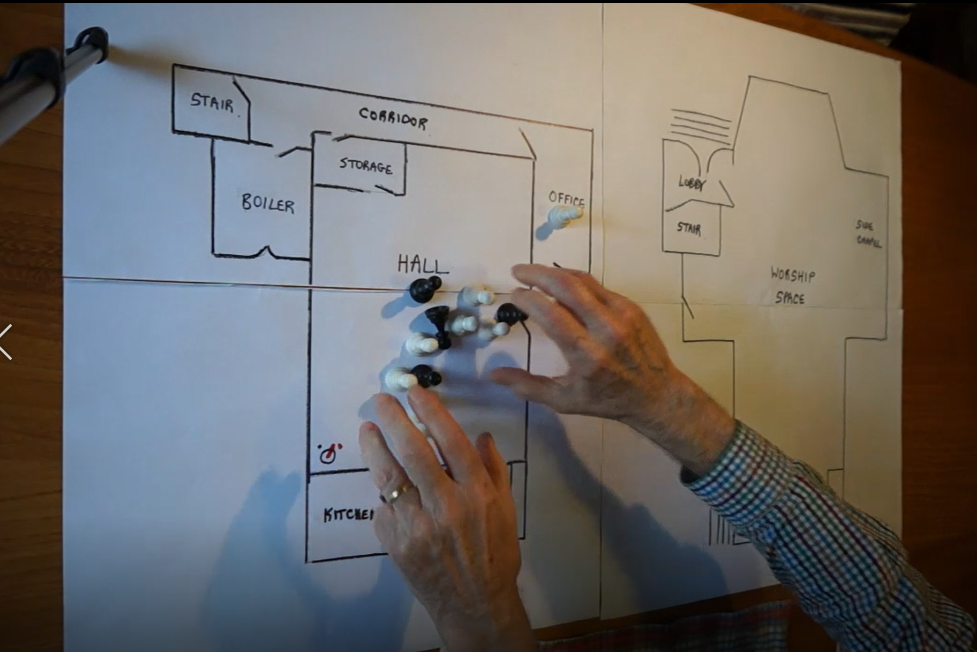
A card game as part of the project sessions
A collaborative effort to tackle energy challenges
Churches and community centres offer spaces for a wide range of activities, from childcare to senior support groups. However, these buildings are often difficult to heat, creating both financial and environmental challenges. Led by Jean Carletta of The Surefoot Effect and funded by the Ingenious public engagement grants scheme, this project connected engineers with local communities to address these challenges.
"We have been matching volunteer engineers with community groups to understand how to save energy in their buildings and how to make the big plans to move the buildings to Net Zero in the future. Jean added, "for groups, this is a really important programme because they tend to get depressed about how difficult it is to run a community venue." The initiative prioritised venues in the lowest three deciles of deprivation, reflecting a strong commitment to underserved communities.
Empowering communities to take action
The project was not just about technical solutions—it focused on empowerment. Engineers worked closely with staff and volunteers to explore energy usage in their buildings and motivated them to take action. Group sessions were structured so that they did not feel like work or business, instead, they used games and activities. A comprehensive guidebook provided additional details to help groups act on their plans.
Practical results appeared quickly. Jean shared an example: "An engineer discovered that he could save a quarter of their gas bill by just spending £200 on new controls. They’re going to save a couple of thousand pounds a year."
Tailored plans were especially valuable for older buildings, like churches, where traditional energy-saving methods might not work. Jean noted: "If you’re just heating a few times a week or you’ve got a leaky building like an old church, you might have to go a different direction and think about low air temperature with radiant heating or heated seating to make people comfortable."
By the end of the programme, most groups felt confident about the actions they could take to improve their buildings.

A board game as part of the project sessions
A rewarding experience for engineers
For many engineers, particularly younger ones, the project offered a unique opportunity to step outside their usual work environments. While they developed engagement skills, the most rewarding aspect was using their expertise for the greater good. Jean explained: "What they overwhelmingly got out of it was that they were able to use their skills for something that they felt was really good for society and good for the climate." She added, " the engineers were happy to use their skills to help their local communities, so much so that some of them wish to continue with new groups after the project finishes. "
Over 30 engineers participated, and a quarter have asked to continue supporting community groups or help expand the programme.
A growing legacy
The programme’s impact continues to grow. The Scottish Episcopal Church hopes to run the programme with 100 churches over two years. Meanwhile, local grassroots groups and climate action networks in Scotland are exploring how they can use the programme. Free online materials from the programme are available, including training resources and games so that it can remain accessible to any future groups.
This project shows how practical engineering can make a real difference, leaving a lasting legacy, empowering both engineers and communities to create more sustainable spaces.
Winner of the Church Times Green Champion Award
The Church Times Green Church Awards recognise the urgent environmental crisis that we are in and seek to recognise the efforts being made by Christian organisations and communities, churches, and church schools to care for creation. Building on the success of this Ingenious project, Jean Carletta won the Green Champion category, which celebrates individuals who have made a significant difference through their environmental efforts. Congratulations, Jean.


